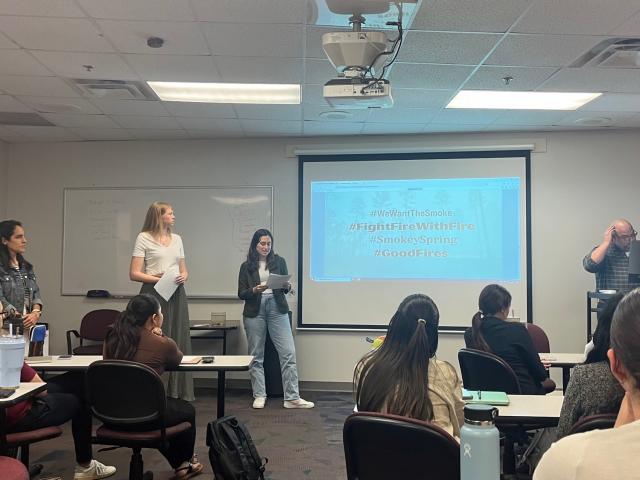Students Create Social Media Campaigns to Engage the Community in Biodiversity Preservation

In the COM 5565 Social Media Campaigns class at Florida State University (FSU), students worked on a real-world challenge—creating social media campaigns for the Coastal Plains Institute (CPI). This course, taught by Dr. Katherine Dale, introduces students to theories and research related to social media campaigns. With the aim of preserving the biological diversity of the southeastern Coastal Plain, CPI faced limitations in terms of social media communication due to its small staff. Through this collaboration, students developed comprehensive campaigns to increase participation and engagement in CPI's activities.
Coastal Plains Institute is dedicated to scientific information dissemination and organizational communication. However, their limited staff capacity prevents them from maintaining an active social media presence. Recognizing the potential of social media to connect with a broader audience, students in the class designed six distinct social media campaigns. Each campaign consisted of multiple posts and stories aimed at generating enthusiasm and support for CPI's conservation efforts.
To effectively reach the target audience, students crafted campaigns tailored to resonate with the Tallahassee community. By understanding their preferences and behaviors, the campaigns were designed to evoke action and encourage behavior change. The social media goals were formulated using the SMART (Specific, Measurable, Achievable, Relevant, Time-bound) framework. Additionally, three impactful messages were incorporated into the campaigns to reinforce the overall objective of engaging the FSU community in biodiversity preservation.
The students' campaign tactics involved leveraging various social media platforms to engage the FSU community. They created 30 pieces of content, each with its unique style and messaging. The content included compelling captions, visually appealing graphics, and concepts for informative videos. The students also proposed ten additional social media tactics, providing a blueprint for the client to develop their own content aligned with the campaign.
To ensure the seamless execution of the campaigns, a comprehensive campaign calendar outlined the specific dates and platforms for posting the designed content. This calendar was complemented by an explanation of how the campaign content could be integrated with CPI's existing content strategy. The evaluation plan offered multiple strategies for measuring the campaign's effectiveness, empowering CPI to assess its impact accurately.
The collaboration between Dr. Dale’s Social media Campaigns class and Coastal Plains Institute has now occurred two semesters in a row. By leveraging the power of social media, these students have helped CPI dedicate more time to their mission by showcasing their programs in an effective way.
To learn more about the Coastal Plains Institute, visit https://www.coastalplains.org/.
To learn more about the Living Lab program, visit https://sustainablecampus.fsu.edu/living-lab-program.
